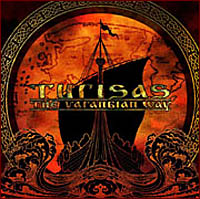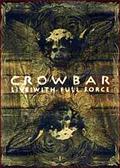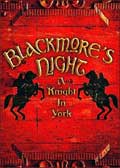TURISAS (fi) - The Varangian Way (2007)

Label : Century Media / EMI
Sortie du Scud : 18 juin 2007
Pays : Finlande
Genre : Metal épique
Type : Album
Playtime : 8 Titres - 43 Mins
La bière coulant à flots vous manque ? Un problème de pilosité absente ? La voix qui ne veut pas muer ? Une petite envie de peau de bête sur les épaules et d’une hache entre les mains ? Eh bien, vous tomber bien, le dernier TURISAS vient de sortir ? Quel rapport me direz-vous. C’est parce que vous n’avez pas encore écouté cet album de Metal épique qui ferait passer RHAPSODY pour des versaillaises pré pubères en mal de jupes écossaises. Bon, je suis méchant, ils ont fait de bons trucs les italiens, mais TURISAS c’est la version burnée de la chose.
On est mis dans le bain dés les premières notes. On va s’en prendre plein les esgourdes pour pas cher. Et quand arrivent les chœurs qui nous donnent l’impression d’être au milieu de la taverne, ou de la bataille, avec eux, vous sentez le poids de la fesse chaude et molle de la serveuse dans votre paume. Limite si les cornes ne vous poussent pas en même temps que le casque sur la tête. C’est vraiment énorme. Oui, d’accord, c’est peut-être pas de prime fraîcheur en ce qui concerne l’originalité, quoi qu’on puisse se poser la question, mais qu’est-ce que c’est bon !
« To Holmgard And Beyond » et « A Portage To The Unknown » sont dans cette veine musicale. Puis arrive l’intro de « Cursed To Be Iron » où on se dit que les sept nains vont débarquer et nous chanter leur chanson ! Mais non, c’est un morceau qui commence un peu comme des passages de DIMMU BORGIR et qui se poursuit avec un couplet qui m’a fait pensé à THE POGUES. Hasardeux mélange, mais tellement jouissif. Et on poursuit dans cette veine vraiment très bien orchestrée, avec un « In The Court Of Jarisleif » complètement déjanté et fou. Et l’histoire se termine par un « Miklagard Overture » magistral.
Une chose que je n’ai pas mentionnée mais qui a son importance. Ce disque raconte l’histoire des Varègues, un peuple scandinave oublié mais qui marque pourtant son temps. Mes propres connaissances sur le sujet étant nulles, je vous laisserai chercher des références à ce sujet. En tous cas, TURISAS leur rend aujourd’hui justice avec cet album épique, certes, mais pas seulement. C’est du grand œuvre, peaufiné, à savourer. Seul bémol, une double grosse caisse peut-être un peu trop présente par rapport au reste, mais qui donne aussi ce côté de martèlement essentiel à cette traversée majestueuse.
Ajouté : Lundi 09 Juillet 2007
Chroniqueur : Wong Li
Score :     
Lien en relation: Turisas Website
Hits: 13823
|













